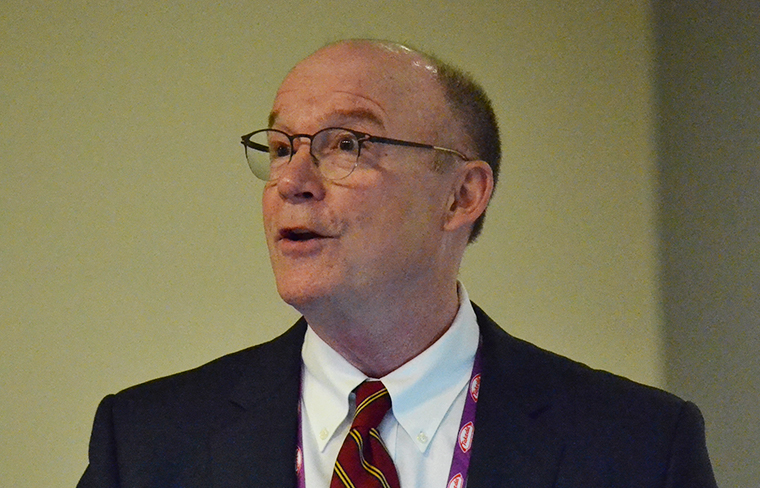
SSAT is preparing for a new strategic plan. The new plan will include a re-evaluation of the society’s role as well as its financial future and ongoing relationship with DDW®.
“We implemented our first 10-year strategic plan in 2010,” said SSAT President Stanley W. Ashley, MD, during the SSAT Presidential Plenary on Sunday. “We are at the right time to start planning the next 10 years.”
SSAT’s first strategic plan has left the organization on a solid footing, he noted. As one of the founding partners of DDW, SSAT has long since met its original goal of encouraging and focusing on novel clinical and experimental solutions to the many problems of the alimentary tract.
SSAT Foundation assets have climbed steadily for the past decade while DDW income has provided a firm financial footing.
At the same time, SSAT membership and DDW attendance has remained steady. The society has a solid pipeline of young members moving toward leadership positions, but the group remains primarily male and white. And while recruitment of new members has kept pace with loss of membership from retirement and failure to pay dues for three consecutive years, there is no clear source of new members.
“We have as much of an opportunity in retention as in building new membership,” Dr. Ashley said.
General surgeons are the single largest group within SSAT, but most general surgery members are in their 50s and 60s. Within a decade, the majority of members will be subspecialists, he predicted.
That demographic shift raises questions about the future, Dr. Ashley said. SSAT has staked its place as an inclusive group welcoming all GI surgeons. Should it continue that big tent approach or should the society become a home for subspecialists?
There is already a move toward the inclusive approach with a new advanced GI surgical training program in development. The program would focus on specialized training for general GI surgeons, particularly those working in community settings. Most current members work in academic settings.
“We have a rich history,” Dr. Ashley said. “We have advanced the science of surgery and are in the midst of supporting a new model in GI surgery training that may appeal to a new set of surgeons. We need to focus on our aspirational vision of where we want to be in 10 to 15 years. Everything we do should be focused on getting us there.”



